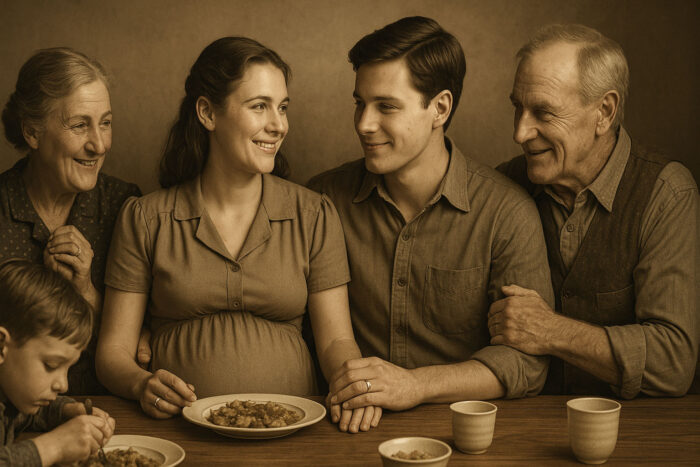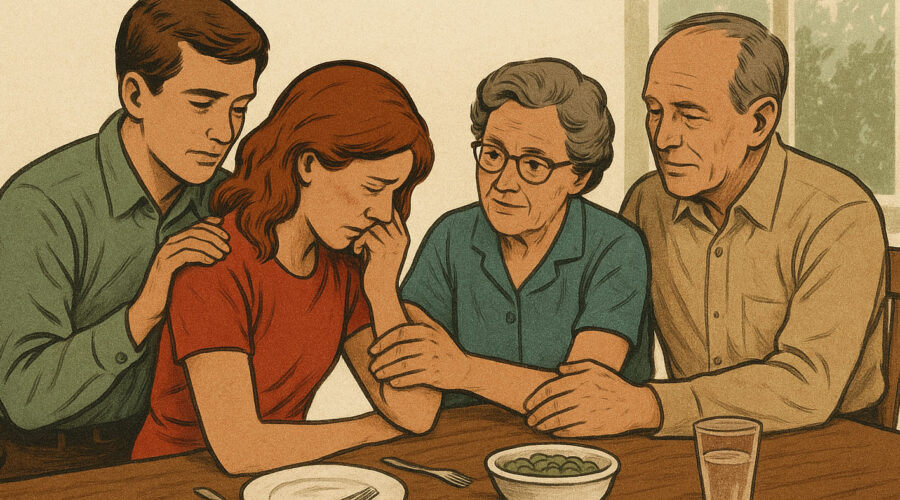Ode to Billie Joe teaches us about indifference. The Bible teaches us about compassion.
Bobbie Gentry’s 1967 classic, Ode to Billie Joe, is more than just a Southern Gothic tale, it is a quiet indictment of apathy. Around the dinner table, a family carries on casual conversation about Billie Joe’s young man’s tragic death, passing peas and pouring tea as if nothing of significance has happened. As music historian Tara Murtha notes in her book Ode to Billie Joe, the song is “a study in unconscious cruelty,” (as Gentry is claimed to have said) quietly revealing how people can grow numb to the suffering around them — a meaning Gentry left mainly to the listener’s interpretation.
Despite its somber tone, the song resonated. It spent four weeks at the top of the Billboard Hot 100 and earned Gentry multiple Grammy Awards. Its enigmatic lyrics are still studied and debated nearly sixty years later. What most people don’t know is that Gentry’s original recording was over seven minutes long with eleven verses, but it was edited down to five verses to fit radio playtime — trimming the story, but not the weight of its message.
How fitting a snapshot of today’s culture. We pride ourselves on empathy and awareness campaigns, yet show a startling lack of genuine concern. Take, for instance, the recent CBS News report on the rising number of homeless military veterans in major U.S. cities. Many of these men and women, once celebrated, are now invisible. In Los Angeles alone, over 3,800 veterans live on the streets. City leaders make promises, charities fundraise, yet real, lasting change remains out of reach. Much like the family in Gentry’s song, society notices but doesn’t care enough to act.
This kind of indifference is not new, but it is particularly dangerous in a culture that is increasingly self-absorbed. Scripture gives no quarter to such apathy. James 2:15–16 confronts it plainly: “If a brother or sister is poorly clothed and lacking in daily food, and one of you says to them, ‘Go in peace, be warmed and filled,’ without giving them the things needed for the body, what good is that?” Similarly, 1 John 3:16–18 reminds us, “But if anyone has the world’s goods and sees his brother in need, yet closes his heart against him, how does God’s love abide in him? Little children, let us not love in word or talk but in deed and in truth.”
The biblical worldview stands in stark contrast to cultural apathy. Every human being, from the smallest embryo to the frailest elderly man, bears the image of God — the Imago Dei. Human life has intrinsic value not because of what it produces, but because of who made it. Our call is clear: notice, care, and act — not with empathy or platitudes, but with tangible love. The term best suited is compassion, a mixture of love and sorrow that leads us to action. We see the need, feel something for the individual, and move to help them. It’s more than a show – it’s actual help. That’s where empathy falls short – and, perhaps, why Billie Joe jumped off that bridge – he didn’t see anyone around to help him.


Did you know?
Sinead O’Connor did a cover of Ode to Billie Joe
